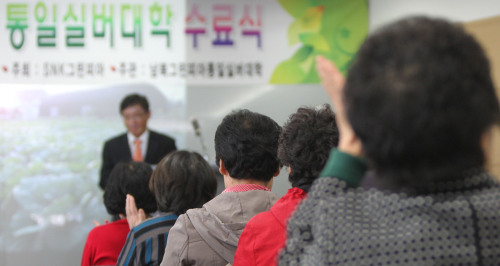Experts say better social care needed to help them adapt to life in South
Many North Korean defectors who risked their lives to come here have sought asylum in other countries after failing to adapt to life in the South, where they initially thought a rosy future lay ahead.
When they land on foreign soil on a travel visa, they immediately discard their passports to disguise themselves as asylum seekers coming directly from the impoverished state, according to defectors and North Korea experts.
Experts said that many defectors in their 20s and 30s have ventured to Britain and other European countries as they found no hope for a decent life here given cut-throat competition with more affluent, educated South Koreans.
“How South Korean society defines the defectors apparently matters for them. Regardless of who they actually are, based on this social definition, they feel a sense of discrimination, deprivation and alienation,” Oh Won-hwan, mass communications instructor at Korea University, told The Korea Herald.
Oh noted that young defectors suffer from “a total dearth of educational, social, human and financial capitals” that puts them at a serious social disadvantage. He has carried out extensive research on young defectors in recent years.
“Most of them defected from the North as they were hungry and could not receive proper education. Also during the defection process in China, they were hiding without any chance to learn anything. Thus, all new knowledge here such as English is obviously overwhelming for them to handle.”
The most popular foreign destination for young defectors is Britain as it has a well-established support system for refugees and asylum seekers, which includes housing, basic living costs, job training and childcare support, according to experts.
According to a report by the U.N. High Commissioner for Refugees, as of the end of last year, more than 580 North Korean defectors were residing in the U.K. as refugees. The figure comprises more than 63 percent of the 917 people living outside the Korean Peninsula after having fled the poverty-stricken North.
A Unification Ministry official said that it is difficult to gather official data on the defectors who have moved to foreign countries to obtain refugee status as they secretly moved out of the country.
“They are our citizens. Some traveled overseas and others moved out for private reasons. Thus it is difficult to keep track of all their details. But we can verify the number of those who died overseas or went missing there,” the official said.
 |
North Korean defectors attend a ceremony celebrating their completion of courses at an educational facility for senior defectors in Incheon on Monday. (Yonhap News) |
“As the refugee issue is sensitive, the countries where they applied for refugee status do not inform us about it, citing their privacy rights.”
Oh of Korea University particularly stressed the difficulty young defectors face due to their lack of English skills, which are crucial here for upward social mobility.
“They have difficulties understanding what their professors say when they spew out many English words. When applying for jobs, companies conduct interviews in English, which obviously let them down. So, many, with some fooled by brokers, decide to go to Britain and other English-speaking states,” Oh said.
“The government appears to give English education to some defectors, but some critics said that it is ‘reverse discrimination’ against South Korean citizens.”
Oh added that young defectors want to go overseas as they feel reluctant to take jobs their peers shun.
“They are in a community where their peers look similar and share the same language. Under this circumstance, they don’t want to pick up easy jobs their South Korean fellows reject whereas they are relatively willing to do the low-paying jobs in foreign countries,” he said.
A North Korean defector said that many young defectors, particularly those who came here alone, feel hopeless in the capitalist society, which evaluates each individual based on how much marketability he or she has.
“After an eight-month resettlement education at a state facility, young defectors are given some money, which the brokers who helped their defection take away. Without job skills here, they feel hopeless despite the high expectations about South Korea based on what they have seen through dramas and movies in the North,” a North Korean defector who came here in 2003 said, declining to be identified.
Another defector who made it to the South in the late 1990s said that the negative public perception about North Koreans is one of the factors that caused them to leave here.
“As many here harbor animosity against North Koreans, they appear to look at the defectors with the same hostility. Some even think that defectors are wasting taxpayers’ money,” he said on condition of anonymity.
“Plus, when Korean students go to two or three private educational institutes to study English and other subjects, how they can ever catch up with their peers here? From this, they always feel insecure and uncertain about their future.”
To help defectors feel at home here, people at large should spread a positive perception of them, he said.
“Things will significantly improve should our society highly value their positive role of their existence here. We can perhaps spread the positive perception that they are a crucial bridge between the South and the North and vital assets to lead the process of national renunciation,” he said.
Nearly 22,000 North Koreans are known to have defected here since the Korean War, braving the life-or-death escape.
The annual number of North Korean defectors steadily increased from 2005 until 2009. It was 1,383 in 2005, 2,018 in 2006, 2,544 in 2007, 2,809 in 2008 and 2,927 in 2009, according to the Unification Ministry.
It then slightly decreased to 2,423 last year when crackdowns around the border areas increased as the North stepped up efforts to boost its hereditary power succession.
By Song Sang-ho (
sshluck@heraldcorp.com)
